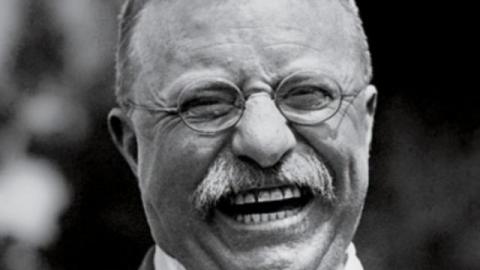Teddy Roosevelt’s Lessons in Media-Savvy

Doris Kearns Goodwin’s new book about Theodore Roosevelt, William Howard Taft and “the golden age of American journalism” invites comparisons between the times she is writing about – the “Progressive era” of the early 20th century – and the times we are living in today, even if the author never makes the explicit comparison herself.
Goodwin details how muckraking journalism teamed with reform-minded government to transform the nation. This highly combustible relationship – Roosevelt coined the term muckraking as an insult, while journalists took it as a badge of honor – is the primary drama in Goodwin’s history, along with the long and bitter rivalry between Roosevelt and Taft.
Goodwin is famous for her appraisal of Abraham Lincoln’s great talent as a manager, a talent he shrewdly used to preside over a cabinet of rivals. In The Bully Pulpit, Goodwin locates Roosevelt’s leadership savvy in his ability to use his office as a persuasion machine. He knew he couldn’t do it alone, so Roosevelt figured out how to utilize the press.
This is where comparisons between the early 20th century and early 21st century get interesting. As Goodwin points out, traditional American life was put under considerable stress during Roosevelt’s time. “Daily existence had become more difficult for ordinary people” she writes, “and the middle class felt increasingly squeezed.” Sound familiar? In these unsettling times, “legislative stalemate paralyzes the country...a dizzying array of inventions speeds the pace of daily life.” Alarming increases in nervous disorders are thought to be due in part to the increased speed of communication that was facilitated by the telegraph and radio.
Roosevelt understood the mood of the country well. He also understood the power of the new communications mediums, and he figured out better than anyone how to use them to his advantage. Indeed, the rise of Roosevelt’s career, and the rise of the profession of journalism in America, closely mirror each other.
The Spanish-American War made Roosevelt one of the most famous men in the country. As Goodwin demonstrates, the Spanish-American War was also a game-changer for journalism. The public developed an insatiable appetite for news about the war, and newspapers and magazines invested enormous sums to meet this demand. After the war, as circulation continued to grow, magazines such as McClure’s published hard-hitting investigative pieces on labor unions, industry and government, exhorting readers to “take action against corruption in every phase of industrial life,” Goodwin writes.
The way that Roosevelt tapped into this hunger for reform, and also how he negotiated relationships with a group of extraordinary writers who agitated for reform, is the subject of Goodwin’s book.
Image courtesy of Shutterstock





